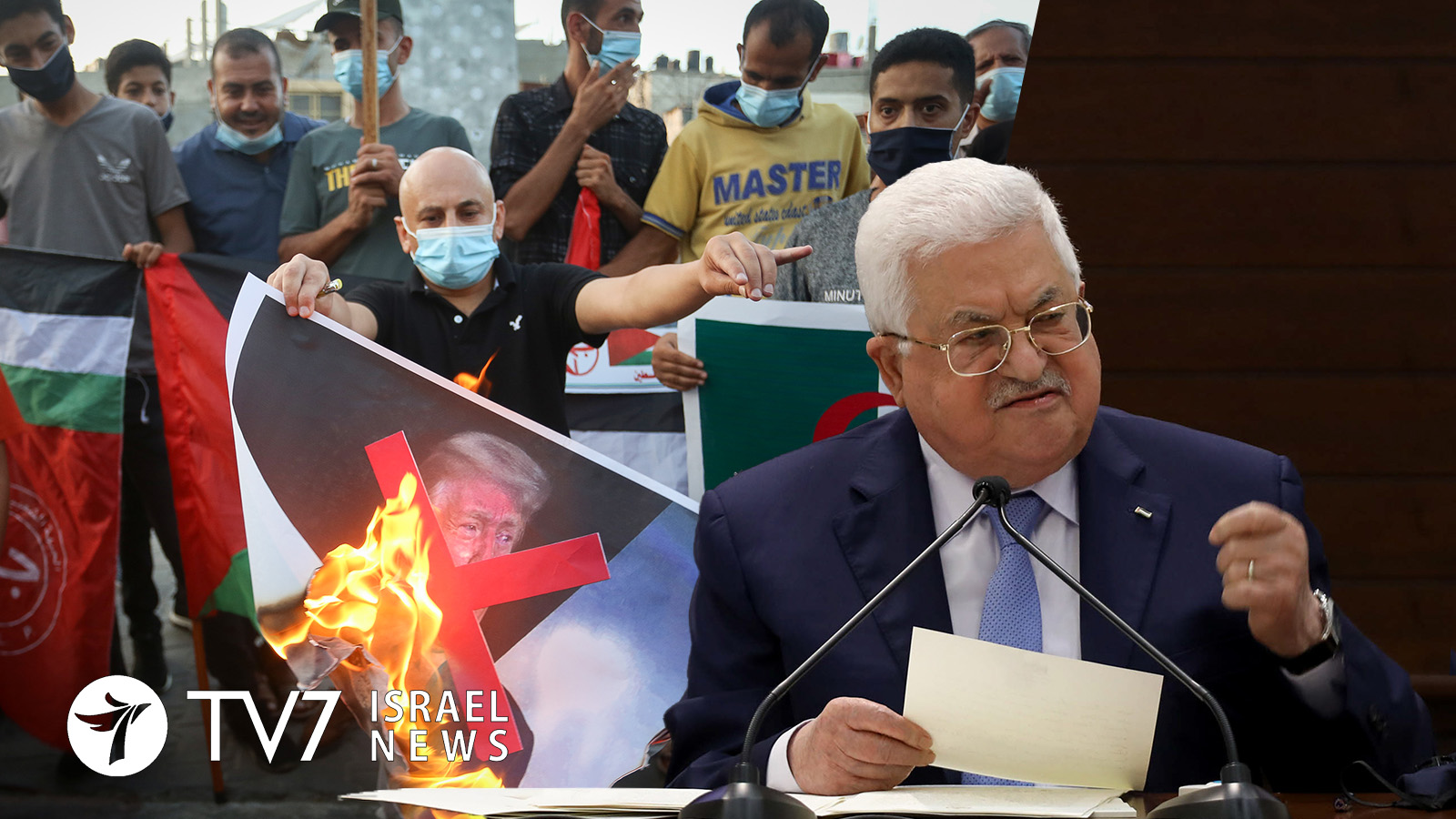Saudi Arabia’s former intelligence chief and ambassador to the United States, Prince Bandar bin Sultan bin Abdulaziz, slammed the Palestinians for rejecting the decisions by the United Arab Emirates and Bahrain to normalize ties with Israel.
“There is something that successive Palestinian leadership historically share in common: they always bet on the losing side, and that comes at a price,” said the prince during the first of a three-part interview aired this week by the Saudi-owned Al Arabiya television.
Prince Bandar branded the Palestinian authorities’ reaction to the Abraham Accords as a “transgression” and “reprehensible discourse.”
As a member of the ruling House of Saud, Prince Bandar served as the Kingdom’s Ambassador to the United States 1983-2005. The following decade he was Secretary General of Saudi Arabia’s National Security Council, while serving simultaneously as Director General of the Saudi Intelligence Agency 2012-2014. He was also Special Envoy to Saudi King Abdullah bin Abdulaziz Al Saud 2014-2015.
The U.S.-brokered deals between Israel, the UAE and Bahrain were signed in Washington, D.C. on 15 September, and are widely seen as a strategic realignment of Middle East countries against Iran. It should be noted that Bahrain is a close Saudi ally.
Saudi Arabia, the cradle of Islam, has not directly commented on Israel’s normalization of ties with the two Gulf Arab states, but it has reiterated commitment to peace on the basis of the Arab Peace Initiative. After reminding the Palestinians that they have been backed by successive Saudi kings for decades, Prince Bandar said “this low level of discourse is not what we expect from officials who seek to gain global support for their cause.”
In events he said “sums up the events of the last 70 or 75 years,” the Saudi statesman said that “the Palestinian cause is a just cause but its advocates are failures, and the Israeli cause is unjust but its advocates have proven to be successful.”
While Saudi Arabia is not expected to follow the example of its Gulf allies any time soon, experts and diplomats believe the kingdom has started shifting the public discourse on Israel. Riyadh did, however, announce an historic decision to allow Israeli airlines to fly through Saudi airspace to facilitate direct flights to the United Arab Emirates.
Palestinian President Mahmoud Abbas called UAE’s move “a betrayal” and likened it to being “a stab in the back of the Palestinian cause,” while veteran Palestinian negotiator Hanan Ashrawi labeled the pact “a complete sell-out.” Abbas’ West Bank-based Fatah faction has even been trying to repair relations with its bitter rival, the Gaza-based Islamist Hamas group, in an attempt to present a unified Palestinian front against Israel’s normalization with the Arab and Muslim world.
Saudi Arabia’s former intelligence chief and top diplomat again criticized Palestinian leaders during the interview’s final episode broadcast yesterday, when he said, “we are at a stage in which – rather than being concerned with how to face the Israeli challenges in order to serve the Palestinian cause, we have to pay attention to our national security and interests.”
He underscored the high regard with which Palestinian leaders hold for “new players into the picture” such as Iran and Turkey, that are engaged in cross-border intervention and destabilization of the region, as opposed to Saudi Arabia and other Gulf countries. “Turkey occupies Libya and wants to liberate Jerusalem by withdrawing its ambassador from Abu Dhabi. Iran wants to liberate Jerusalem through the Houthis in Yemen or through Hezbollah in Lebanon and Syria,” he said.
“Things are clear, and we are at our limit with those guys,” said the Saudi Prince about the Palestinians, even though he maintained that Riyadh remains supportive of their cause.
Prince Bandar’s daughter, Princess Reema, is the current Saudi Ambassador to the United States.
